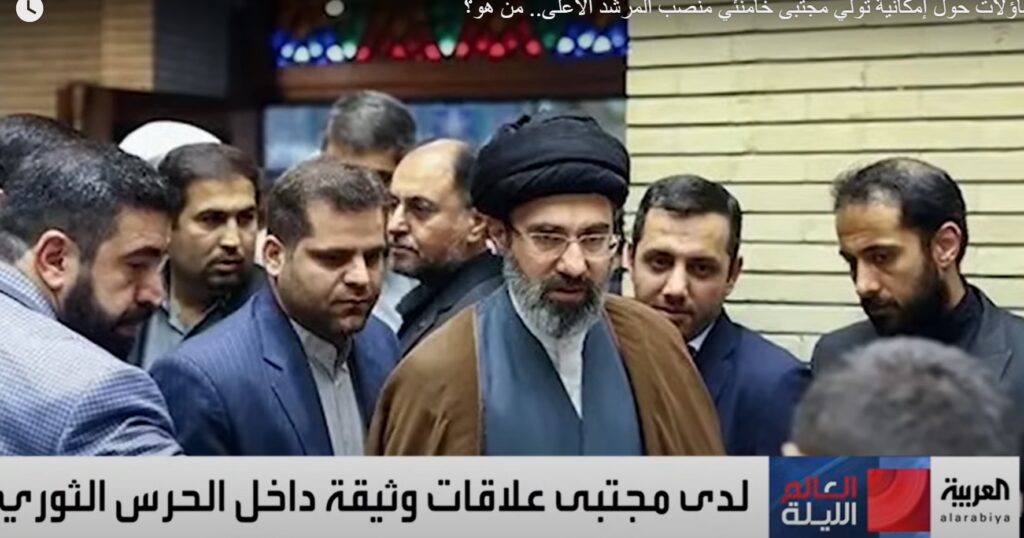Rumors are circulating in Iran regarding the deteriorating health of Supreme Leader Ali Khamenei, fueling speculation about the regime’s future leadership.
Reports claim that Khamenei is either in a coma or recovering from a heart attack, and past claims suggest the 85-year-old leader is battling cancer. To counter these rumors, the regime recently released a photo of Khamenei meeting with Iran’s ambassador to Lebanon, who was injured in an alleged Israeli Mossad operation in September.
Amid these developments, Mujtaba Khamenei, Ali Khamenei’s son and potential successor, has become the subject of intense scrutiny.
Intelligence reports from Western sources suggest that recent rumors about Mujtaba being designated as the next supreme leader are part of psychological warfare by Iranian opposition groups or possibly Israeli intelligence.
Yet, some sources claim Iran’s “Council of Experts” has already chosen Mujtaba as the next leader while his father remains alive.
Opposition to Mujtaba’s Ascendancy
The possibility of Mujtaba inheriting the supreme leadership has sparked unrest within Iran.
Public opinion is broadly against the idea of transforming the position into a hereditary one, and critics argue that Mujtaba lacks the requisite religious qualifications.
Despite the controversy, Mujtaba wields significant influence within the regime, particularly through his close ties to the Revolutionary Guards and Iran’s intelligence apparatus.
A More Radical Figure
Mujtaba is widely viewed as more hardline than his father.
He is deeply aligned with the Revolutionary Guards and is an ardent supporter of the “Axis of Resistance” strategy, which aims to confront Israel on multiple fronts.
Western intelligence links him to Iran’s nuclear program and asserts that he prioritizes acquiring a nuclear weapon to secure Iran’s regional dominance.
Following the U.S. assassination of General Qasem Soleimani in 2020, Mujtaba’s influence within the regime reportedly grew.
The deaths of Soleimani and, more recently, Iranian President Ebrahim Raisi in a helicopter crash in May 2024 have eliminated key rivals, consolidating his position as a leading candidate for succession.
Notably, rumors circulated that Mujtaba orchestrated Raisi’s elimination to clear his path to power, though these claims remain unverified.
Implications for Israel and the West
For Israel and its allies, the prospect of Mujtaba Khamenei assuming power poses significant challenges.
His radical stance and support for aggressive policies, including the pursuit of nuclear weapons, suggest a heightened threat level.
Some voices within Israel’s security establishment view the current rumors and internal unrest in Iran as an opportunity to further destabilize the regime, given its fragile economic state.
Israeli security sources have reportedly discussed extreme scenarios, including targeted assassinations of key Iranian leaders such as Ali Khamenei, Mujtaba Khamenei, and Revolutionary Guards commander Hossein Salami.
The successful elimination of figures like Hezbollah leader Hassan Nasrallah and Hamas leader Ismail Haniyeh has demonstrated the capabilities of Israeli intelligence in such operations.
Conclusion
As speculation over Mujtaba Khamenei’s potential leadership intensifies, Iran remains in a state of political uncertainty.
Whether or not these rumors materialize, they expose the regime’s vulnerabilities and highlight the stakes for both Iran’s domestic politics and regional security dynamics.




